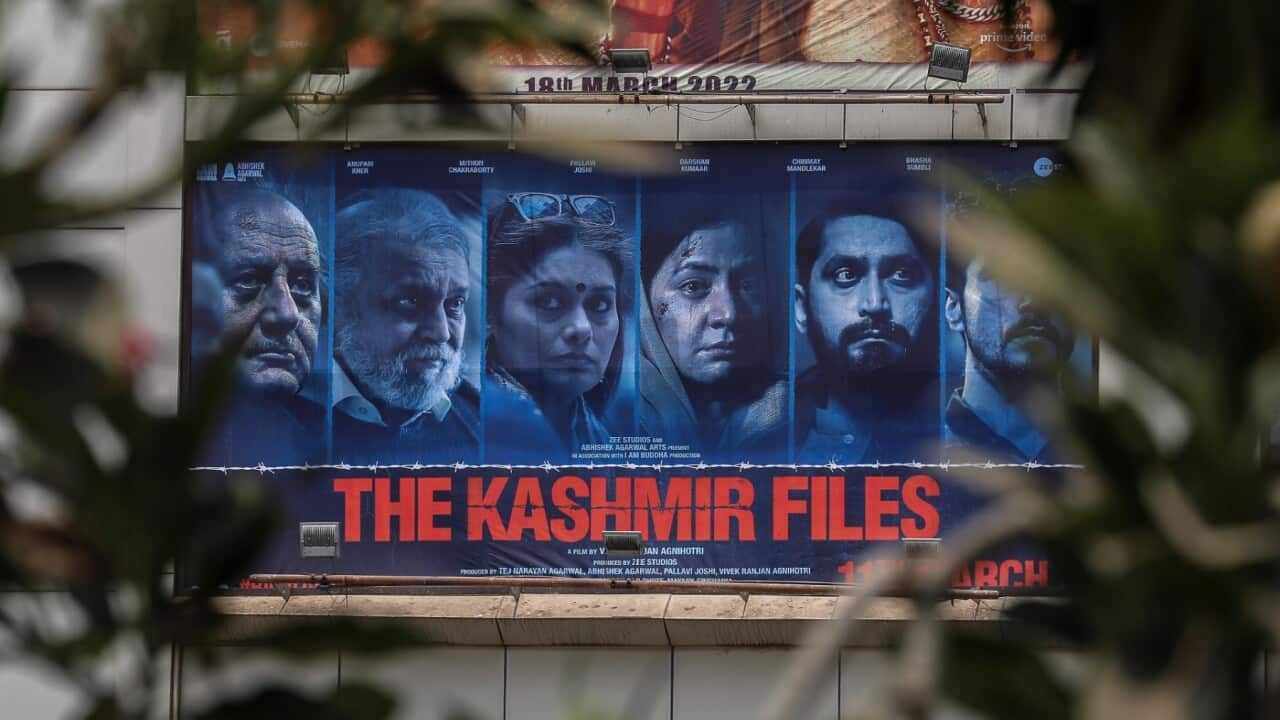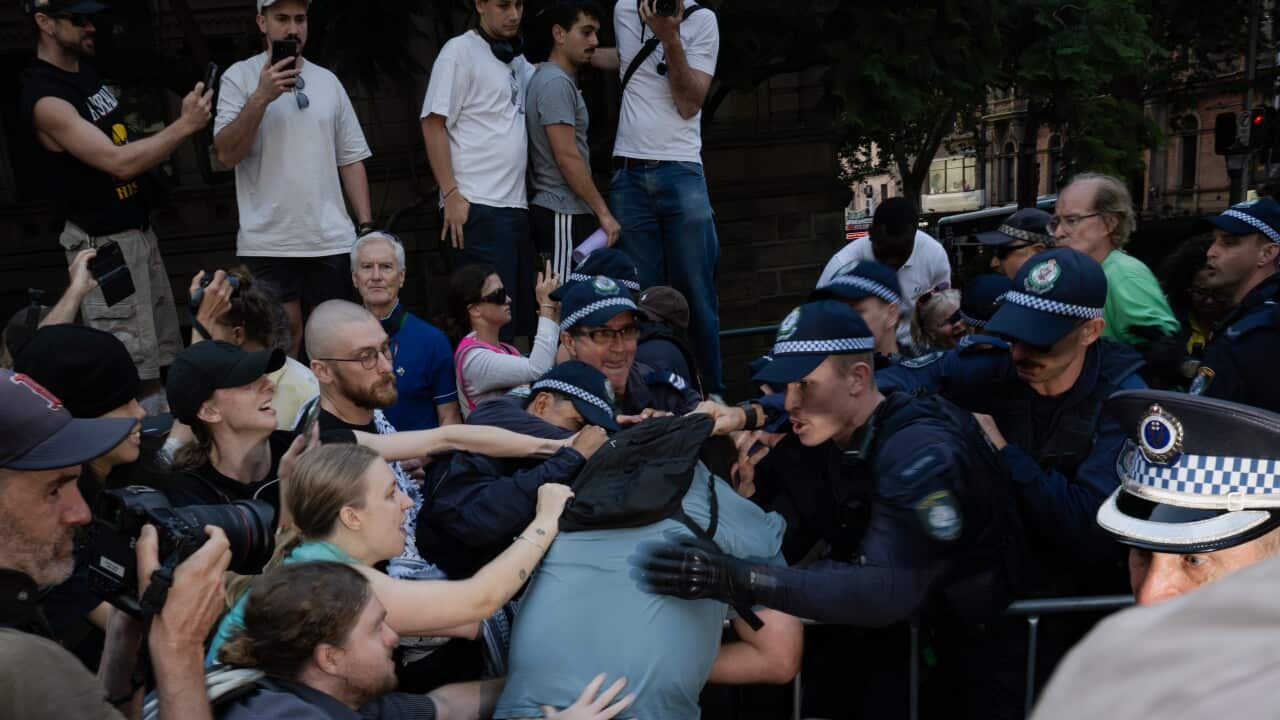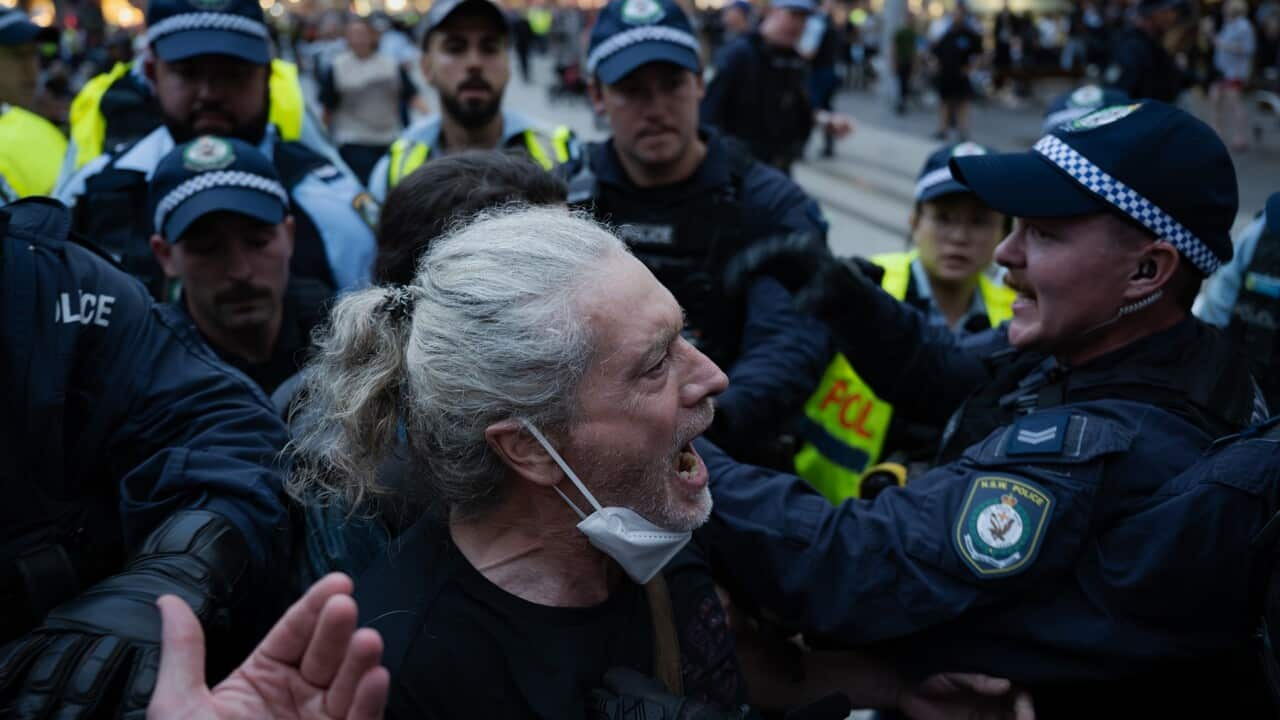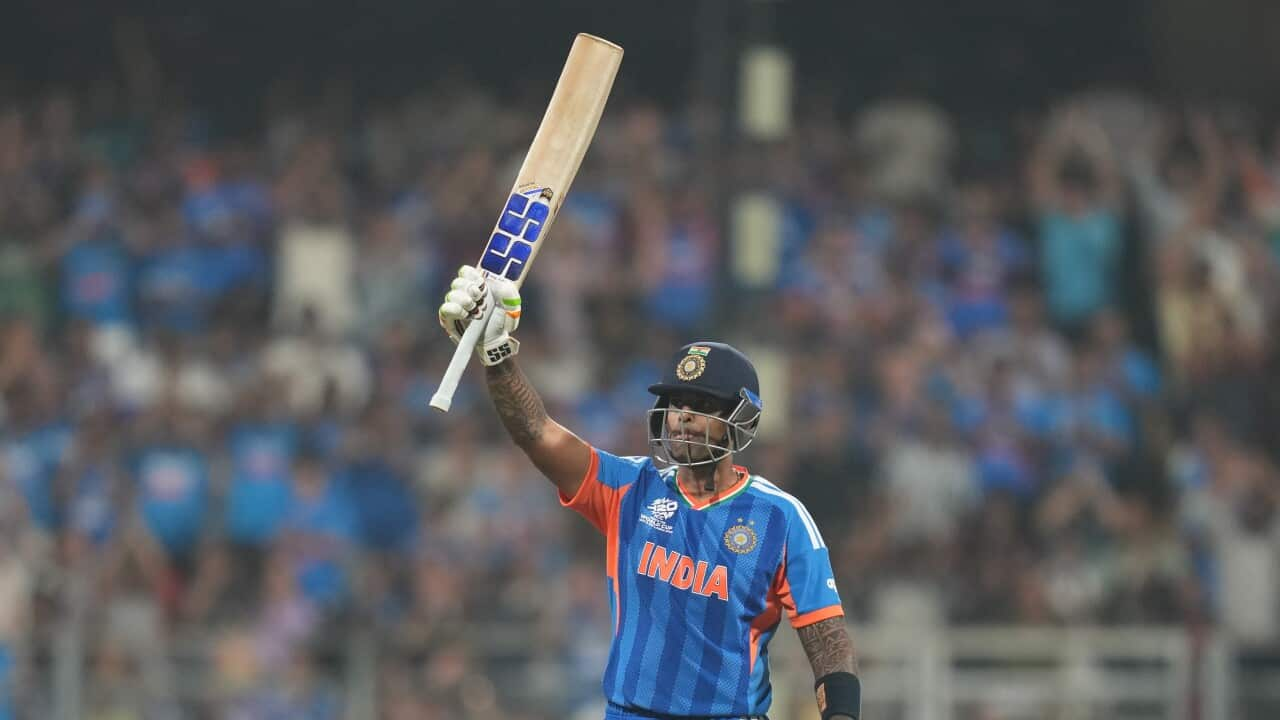Released in March, 'The Kashmir Files' is a drama based on the exodus of Kashmiri Hindus in the 1990s.
Speaking exclusively to SBS Hindi, India's National Award-winning director Vivek Agnihotri claims extensive research went into making the film.
Highlights:
- In an exclusive interview with SBS Hindi, ‘The Kashmir Files’ director Vivek Agnihotri speaks about the importance of primary, secondary and tertiary research to his film
- The film has already grossed $1.13 million in Australia, but has garnered both criticism and support
- Mr Agnihotri says the film is not anti-Muslim but rather depicts the ‘face of terrorism’
- Australian activists, academics and film experts have questioned its narrative
“Research is quintessential for a film of this nature, and our production house, I am Buddha, the only research-based production company in India, conducts long, extensive, scientific research which is based on statistics, surveys and interviews,” Mr Agnihotri says.
“We researched for 3-4 years before starting my last film, ‘The Tashkent Files’, and research on my next film, ‘The Delhi Files’, already started two years ago.”
Mr Agnihotri explains that for ‘The Kashmir Files’ his team interviewed 700 people, which served as primary research.
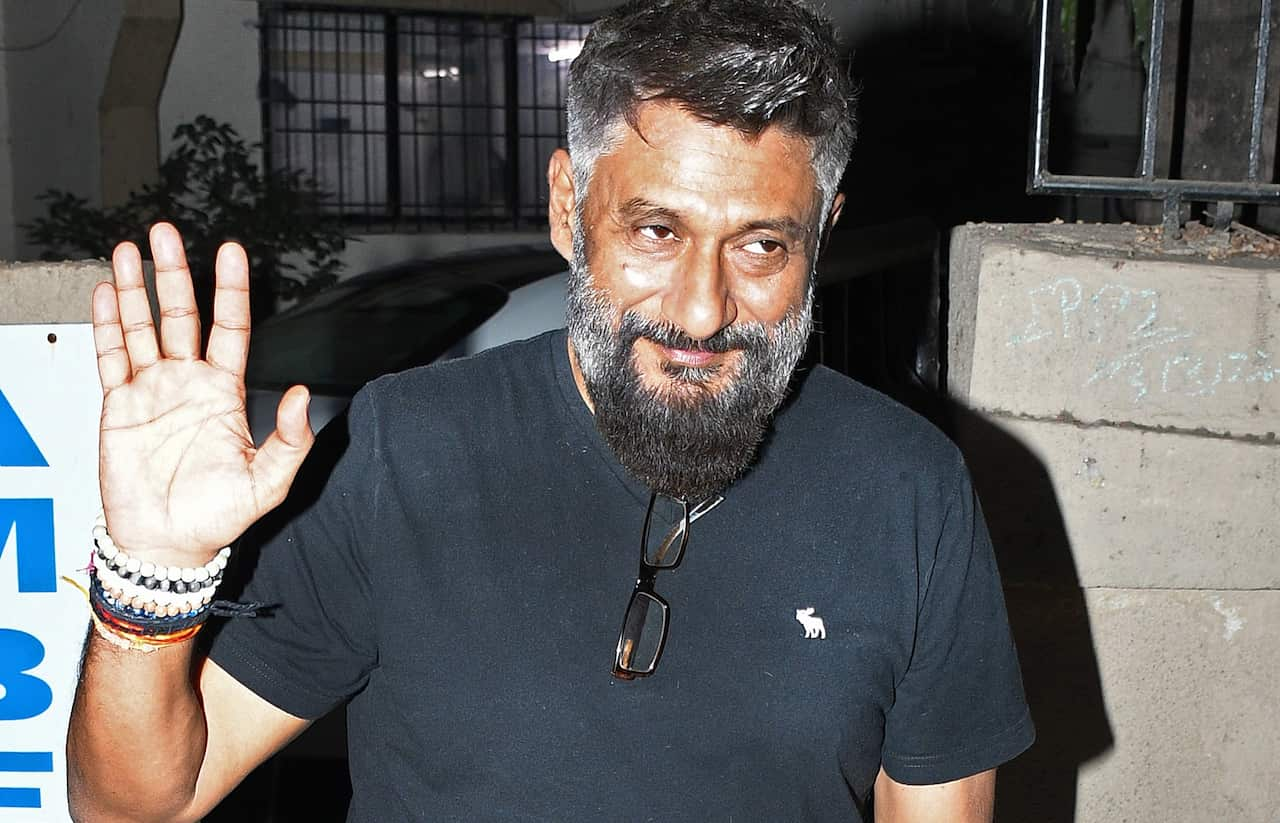
“We spoke directly with the concerned subjects. The next step was to collect all the data and look for common denominators or overlapping subsets. We filtered out the factors and stories that were common in all the interviews, and then focussed on the ultra-common subsets within these common stories,” the director says.
“The data was computed and analysed, and we corroborated these stories with secondary research, which included media coverage, books written by historians and political experts, and also cross-checking facts with administrative records.
“The team weaved the story together after undertaking all of this in-depth research and analysis.”
Mr Agnihotri says cinema is an influential medium with unimaginable power, with Hollywood a prime example of American soft power.
“The Kashmir Files’ is also gradually creating awareness about the plight of the Kashmiri Pandits, and this sentiment has been recognised and resonated with large sections of the Indian diaspora worldwide.
“It is genuinely a ‘people’s movie,’ as the film did not have conventional marketing, but was prompted by fans and supporters via WhatsApp and social media.
"It has now become a worldwide phenomenon, with successful screenings in Houston, Frankfurt, and other cities across the world, as well as in countries such as Finland, Australia and New Zealand, where Hindi films traditionally have a limited market.”
Questioned about the film’s reception, the director says that billions of people have seen ‘The Kashmir Files’, and most viewers have empathised with the Kashmiri Hindu community.
“I do not agree that the film has created polarising opinions as only a few people, a small minority have had any objection to the film, while the vast majority has accepted this film.
“And the biggest thing is this film is not anti-Muslim, this film is anti-terrorism. I am against the broad stroke painting of the entire Muslim community and that is why I was very careful with the film’s narrative. I never criticised Muslims, but have just shown the face of terrorism,” Mr Agnihotri says.
Mixed reactions
According to production and distribution house Zee Studios, ‘The Kashmir Files’ has already grossed $1.13 million in Australia and is still running in multiple theatres across the country.
However, Australian activists, academics and film experts have expressed mixed reactions to the film.
Dr Ian Woolford, a Hindi lecturer at La Trobe University, Melbourne, has questioned the film's narrative.
“Agnihotri’s propaganda films promote a right-wing fantasy of an invisible ‘anti-India’ network of cartoonishly evil intellectuals. This fantasy has fuelled harassment and imprisonment of academics who study inequality and oppression,” Dr Woolford tells SBS Hindi.
He says ‘The Kashmir Files’ is designed to incite more hatred of such academics.
“Producer Pallavi Joshi actually admitted that she wants all Indians to ‘hate’ her professor character in the film.”
Dr Vikrant Kishore, a Melbourne-based filmmaker, and media and communication academic, says, "I am troubled by the anti-Muslim rhetoric that this film has spawned, which is extremely problematic and is already dividing the community.
“I strongly believe that cinema can play a pivotal role in creating awareness about the rights of people who have been oppressed, discriminated and uprooted from their homes, and the stories of the displaced, marginalised and the dispossessed communities, in particular, need to be told.
“The stories of Kashmiri Hindus are important, and must be told truthfully, and evocatively."
Dr Haroon Kasim, a Sydney-based doctor and activist, argues that the film vilifies Muslims.

“It is important that we have informed conversations that would help us acknowledge the pain and trauma of Kashmiri Pandits and tell their stories such that they are healing and restorative,” he tells SBS Hindi.
“It is also important that the pain and suffering of all Kashmiris, Pandits, Sikhs and Muslims, be investigated to punish the perpetrators and hold them accountable for their heinous acts.
“But regrettably, the movie ‘The Kashmir Files’ weaponises the plight of Kashmiri Pandits and uses misinformation to portray all Muslims as being violent, barbaric, lecherous or devious.
“Further, it delegitimises the suffering of Kashmiri Muslims who were also victims of the insurgency, creates a binary of the ‘Hindu Victim’ and ‘Muslim Perpetrator’ and succeeds in sowing sentiments of distrust, anger and hatred. This was evident from the calls for violence from moviegoers immediately after seeing the movie,” Dr Kasim tells SBS Hindi.
Listen to the podcast in Hindi by clicking on the audio icon inside the picture at the top.
Tune into SBS Hindi at 5 pm every day and follow us on Facebook and Twitter.
